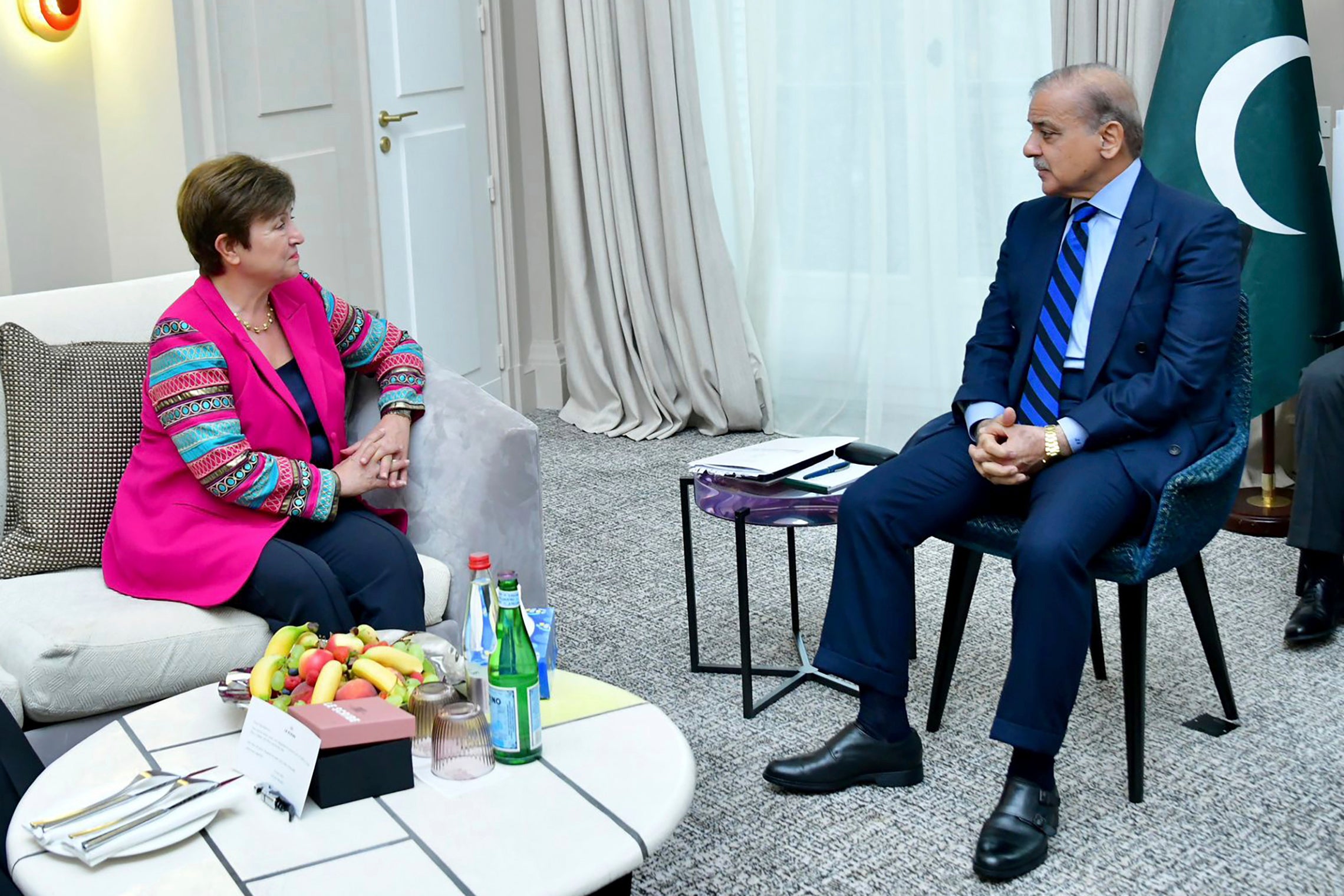Pakistan's premier meets with the head of IMF in Paris, hoping to unlock $6B deal to avoid default
Officials say Pakistan’s Prime Minister Shahbaz Sharif has met with the head of the International Monetary Fund in Paris on the sidelines of the global financing summit in a last-ditch effort to unlock a $6 billion bailout package to help avoid a default

Pakistan’s premier Shahbaz Sharif met Thursday with the head of the International Monetary Fund on the sidelines of a global financing meeting in Paris, hoping to unlock a $6 billion bailout and gain the release of a critical tranche of $1.1 billion in loans which has been on hold since November.
The meeting between Sharif and IMF’s Managing Director Kristalina Georgieva at the Summit for a New Global Financing Pact comes a week before the $6 billion bailout package originally signed between the IMF and the country’s former Prime Minister Imran Khan in 2019 expires.
Sharif replaced Khan in April 2022 after a no-confidence vote in parliament. Since then, Pakistan has been embroiled in an unprecedented economic crisis.
Thursday's meeting came a week after the IMF slammed a proposed annual budget presented to parliament by Pakistan’s government. Esther Perez Ruiz, IMF’s representative for Pakistan, said in a statement that the draft budget failed to implement a fairer tax system as promised in the bailout agreement.
The criticism by Ruiz raised concern the bailout might fall through. Analysts say the deal is crucial because the release of the next installment of loans could encourage other international financial institutions to help the Islamic nation.
If the bailout does not go ahead, that could trigger an economic meltdown at a time when Pakistan is struggling to avoid a default with financial help from China, Saudi Arabia, and the United Arab Emirates. An economic recovery has been hindered by floods last summer that killed 1,739 people and caused $30 billion in damage.
In recent weeks, Sharif has complained the IMF was giving Pakistan a hard time even after his government complied with all the conditions attached to the deal, which expires on June 30.
Sharif and Georgieva exchanged views on cooperation between Pakistan and IMF and the prime minister explained measures taken to improve the economy, a government statement said.
He told Georgieva that Pakistan was fully committed to fulfilling its obligations as agreed with the IMF and said he hoped that the IMF would release the key tranche of $1.1 billion from the $6 billion bailout as soon as possible, it said.
“This would help strengthen Pakistan’s ongoing efforts towards economic stabilization and bring relief to its people,” he told the IMF head, according to the statement.
It said the IMF head “shared her institution’s perspective on the ongoing review process.”
The meeting comes a week after a migrant boat carrying at least 750 people sank on Greece’s coast. More than 500 migrants, including Pakistanis and some Afghan nationals, are still missing.
While in Paris, Sharif is due to meet with other leaders to discuss various issues including how to build economic and trade ties to help Pakistan overcome its economic crisis.
Bookmark popover
Removed from bookmarks